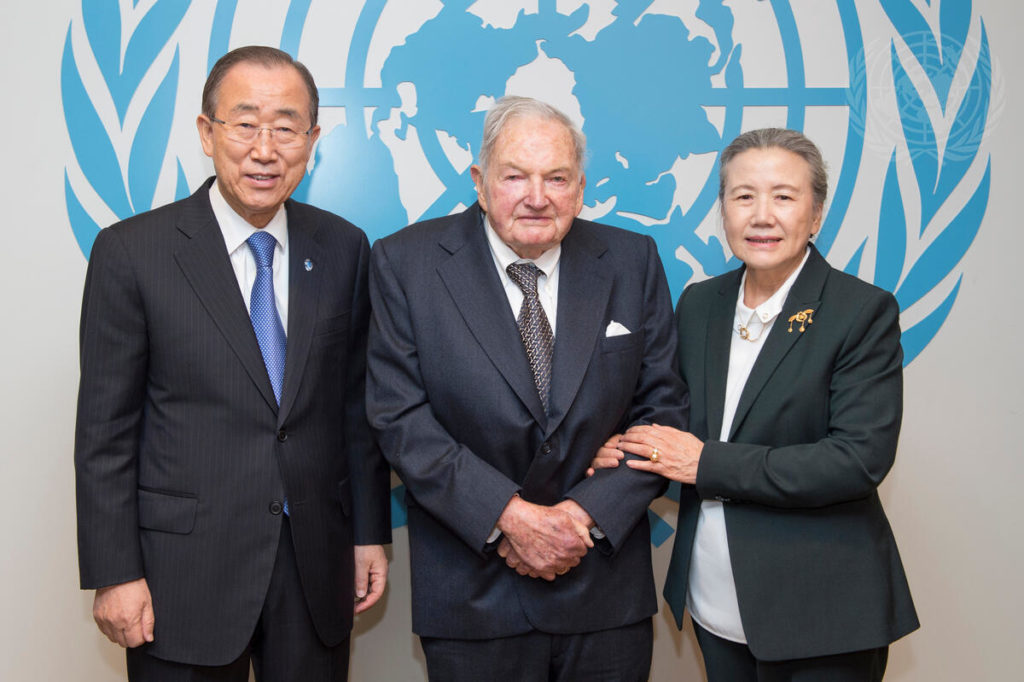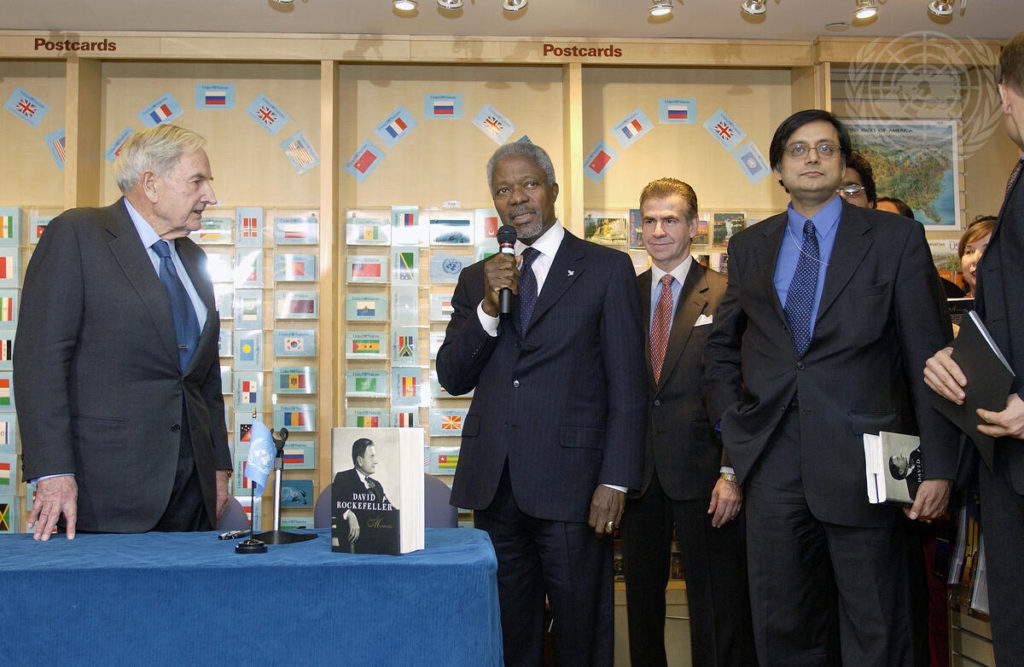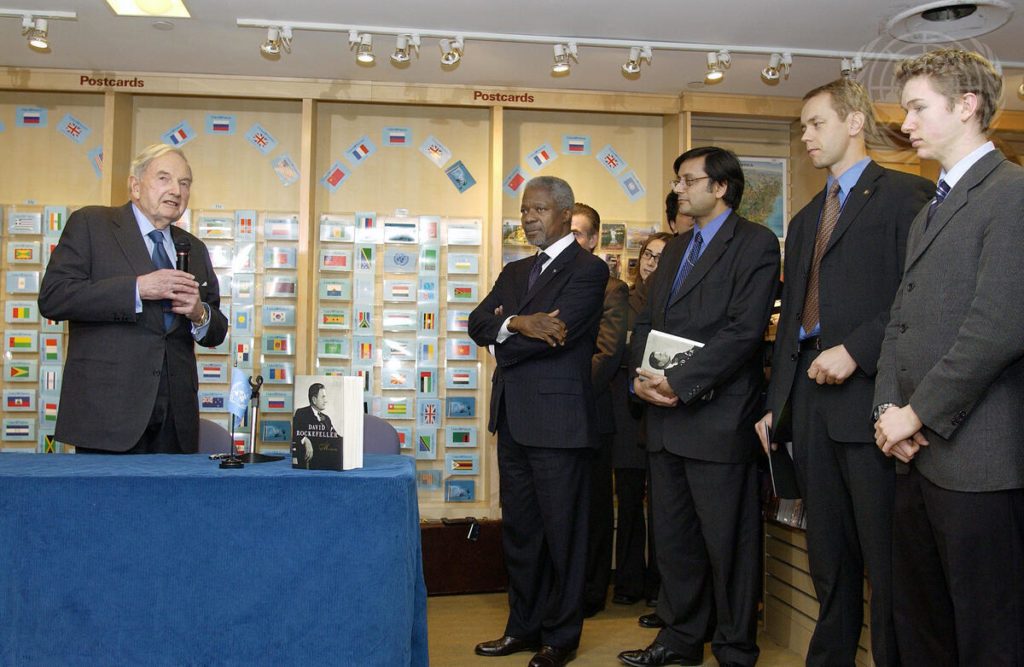With three major international United Nations conferences being planned or proposed to update the 1992 Rio earth summit, the 1994 Cairo population conference and the 1995 Beijing global meeting on women’s rights, the topic of population growth and its effect on the environment, human development and nations’ progress needs serious discussion. That should start in the United States, where connecting these three links has gone out of fashion.
Opinion by Joseph Chamie
[
Forty years ago, the US Commission on Population Growth and the American Future – often called the Rockefeller Commission— submitted a report to the president and Congress. This was the only time the president and Congress ever created a commission to study population growth and its impact on America’s future.
“One of the most serious challenges to human destiny in the last third of this century will be the growth of the population,” President Richard Nixon said when he proposed the commission a few years earlier. “Whether man’s response to that challenge will be a cause for pride or for despair in the year 2000 will depend very much on what we do today.”
The report’s summary was unequivocal. John D. Rockefeller III, the commission’s chairman, wrote in a submission letter on March 27, 1972, that “after two years of concentrated effort, we have concluded that, in the long run, no substantial benefits will result from further growth of the nation’s population, rather that the gradual stabilization of our population through voluntary means would contribute significantly to the nation’s ability to solve its problems.”
But shortly after receiving the report, Nixon rejected it. Nixon, concerned about his re-election, according to Rockefeller, bowed to political pressures, in particular vocal religious and conservative groups, and disavowed the report’s key recommendations.
Rockefeller’s letter also noted that the commission had looked for but did not find any convincing economic argument for continued population growth. It called for an early end to further population increases, appealing to Americans to abandon their “ideological addiction to growth” and the outdated pro-natalist biases rooted in their social institutions. Even businesspeople on the commission supported the central, near heretical finding: “The health of our country does not depend on population growth, nor does the vitality of business, nor the welfare of the average person.”
The commission also said that population growth is a major factor affecting domestic demand for resources and the deterioration of the environment. Slower population growth would reduce pressures on the environment and the depletion of resources as well as gain time to find solutions to the nation’s problems.
The Case for investing in Vaccine Demand
The commission confronted other explosive issues. It recommended decriminalizing abortion, removing legal barriers to obtaining contraceptives, providing sex education in schools, freezing legal immigration to no more than 400,000 a year, stopping illegal immigration, approving the Equal Rights Amendment and ensuring freedom from discrimination based on sex.
The group dismissed charges that it would have the government tell citizens how many children they could have. Its aim was freedom of choice, under which “it would be equally honorable to marry or not, to be childless or not, to have one child or two, or more. Our goal is less regimentation of reproductive behavior, not more.”
US still lacks a population policy
Although the report and its recommendations were rejected, some of the suggestions came to fruition later. In 1973, Roe v. Wade decriminalized abortion. Most states dismantled laws restricting contraceptives and expanded sex education in schools. And much progress has been made on banning sex discrimination.
Notable demographic changes, of course, have occurred in the country since the 1972 report. America’s population has expanded by more than 100 million, to 313 million. Average fertility has declined close to the replacement level of about two children for each family, and teenage pregnancy is at its lowest level in 40 years. Legal immigration has increased nearly threefold, to about 1.1 million a year, and the number of people living illegally in the US is more than 11 million.
Yet the US still has no population policy. Given the November presidential election and the political climate in Washington, it seems doubtful that Congress will address population issues, especially immigration reform, soon.
When the government does begin to debate population policy again, it will be useful to consider demographic realities, future population projections and likely environmental costs. Even with replacement fertility, the US population is projected to exceed 400 million by midcentury. Most of the growth is a result of immigration by migrants and their descendants.
Embracing the traditional pro-growth ethic that “more is better” is as unacceptable now as it was decades ago.
Congress, the president and the public should give serious consideration to the Rockefeller Commission’s recommendation that no major benefits will result from more population growth and that gradual stabilizing of the US population through voluntary means would help significantly to solving American problems.
>
Joseph Chamie* recently retired as research director of the Center for Migration Studies in New York and as editor of the International Migration Review. He was formerly the director of the United Nations Population Division, having worked at the UN on population and development for more than a quarter century.
Chamie has written numerous population studies for the UN and, under his own name, written studies about population growth, fertility, estimates and projections, international migration and population and development policy. He is a member of the Council on Foreign Relations and a trustee of the Migration Policy Institute. He lives in the New York metro area.
>
September 14, 1994
United Nations_Annual Ambassadors’ Dinner
During the annual ambassadors’ dinner, held to honor the United Nations diplomats and secretariat officials, the U.N. Business Council awarded its annual medal to David Rockefeller.
Secretary General Boutros-Gali introduced a video describing the founding of the United Nations and the history of the Rockefeller family’s involvement in world affairs. A number of other awards were also presented.























